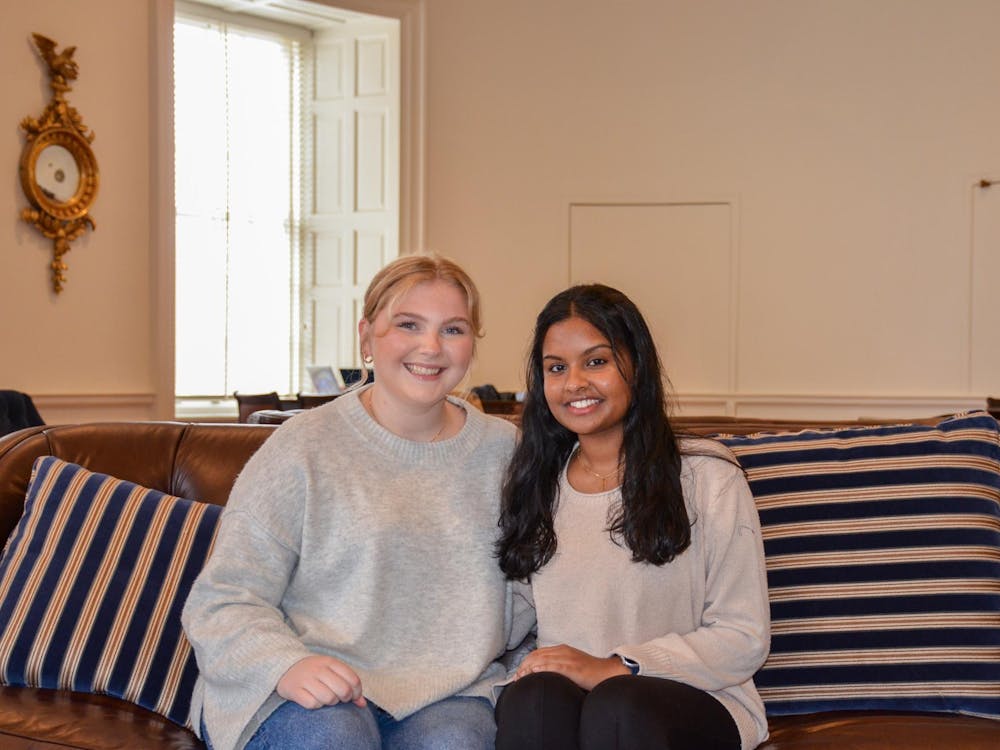Selling over 100 million copies worldwide and bringing in more than $81 million during its first weekend in theaters, “Fifty Shades of Grey” has certainly enraptured its audiences. According to USA Today, the film has set the record for most ticket sales in the month of February, beating out the 2004 release of “The Passion of Christ.” I couldn’t help but be intrigued.
I had no idea what I was getting myself into when I walked into the theater Friday night. My mom had read the books and used to gush about them with her friends, so I didn’t think the storyline could be that bad. Of course, I knew that there would be a lot of sex, but I did not expect the sheer intensity and amount of screen time devoted to Christian and Anastasia’s time in his “playroom.” Wedged between two middle-aged couples, my friend and I were slumped down in our seats the entire time, giggling uncomfortably and begging for the sex scenes to stop. The whole experience was weirdly comical.
What’s even more intriguing is the movie’s lack of romance — Christian and Anastasia’s relationship is purely sexual, and the plot is mainly driven by the fact that he is addicted to domination and uninterested in anything more than the physical, while she begs for their relationship to go deeper. Though I haven’t read the book, I have heard its plotline is just as flat and the characters equally underdeveloped. So, my question is, how in the world has “Fifty Shades of Grey” drawn in so many people?
After a few days of research, I think I may have uncovered a few reasons for the vast appeal. Oddly enough, I don’t think it’s about sex. Yes, sex plays a part — the average audience is middle-aged women, so perhaps it provides an erotic escape from midlife crises and less exciting sex lives. But sex can’t be the only reason, as plenty of women my age are similarly infatuated with the story. When we look beyond the seduction, the submission and the gaudy sensuality, we see a love story — different, but not too different from the love stories which have captured our attention for centuries.
Within the first five minutes of the film, a classic story begins to unfold. When Anastasia first meets Christian, she slips and falls to the floor, and he stretches out a hand to lift her up. We watch as he dominates her thoughts and, in a godlike fashion, swoops in to “save” her from her very average life. So, perhaps the reason we love this story so much is the same reason we love any other — ultimately, we, as humans, want to be saved from ourselves and our feelings of inadequacy. When we step into Anastasia’s shoes, we understand — sometimes despite ourselves —the excitement of being chosen and wanted by someone, and we feel the release of losing control.
Simultaneously, we share the empowerment Anastasia must feel as she works to rescue Christian from his self-destructive lifestyle. And although the first movie doesn’t end in love, by the end of the trilogy, we get a satisfying ending.
“Fifty Shades of Grey” allows us not only to be saved, but also to be the savior, restoring our hope in happy endings. We see the same formula in “Twilight” but also “Pride and Prejudice” and “Jane Eyre.” It is a theme that has extended across time and cultures — and while “Fifty Shades” may have a heavy dose of eroticism, the storyline plays along similar lines. To be loved is our ultimate wish.
The kind of love in romance novels gives us false assurance — we don’t have the power to save others, and in the same way no one has the power to save us. However, these stories shed light on the undeniable desire stamped on our hearts — a desire we try to fulfill through sex and romance. We must recognize, though, that the salvation we seek might not be a love we can find in this world at all — rather, it might be a love so much greater.
Peyton’s column runs biweekly Wednesdays. She can be reached at p.williams@cavalierdaily.com.






